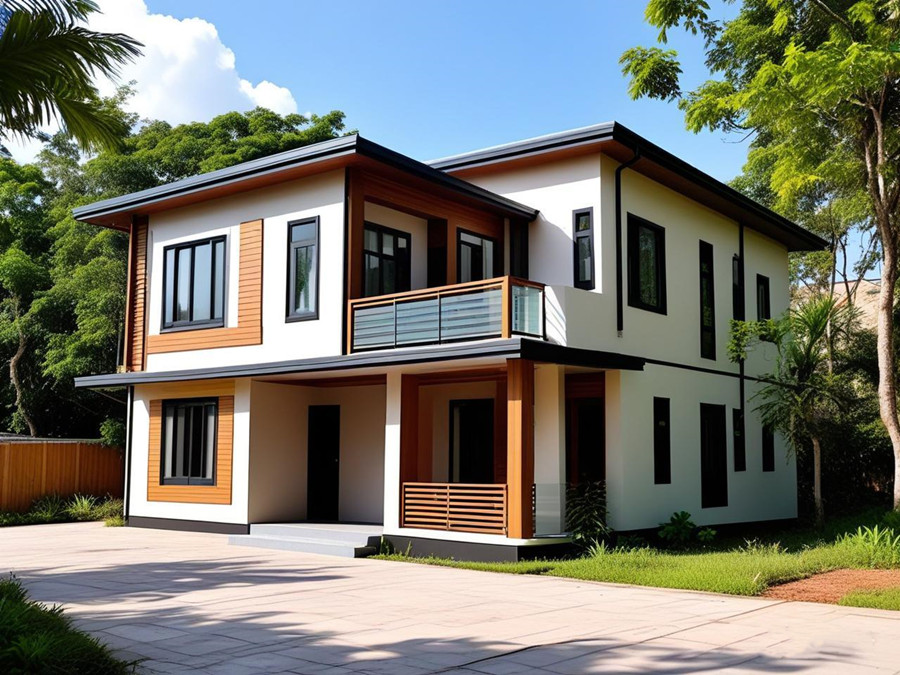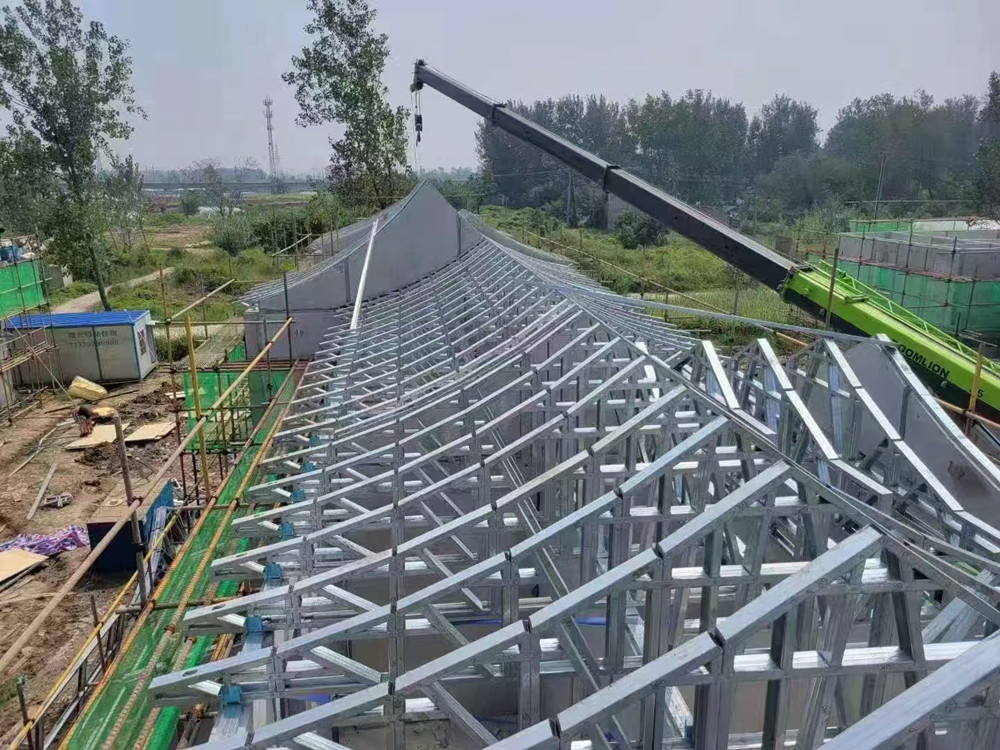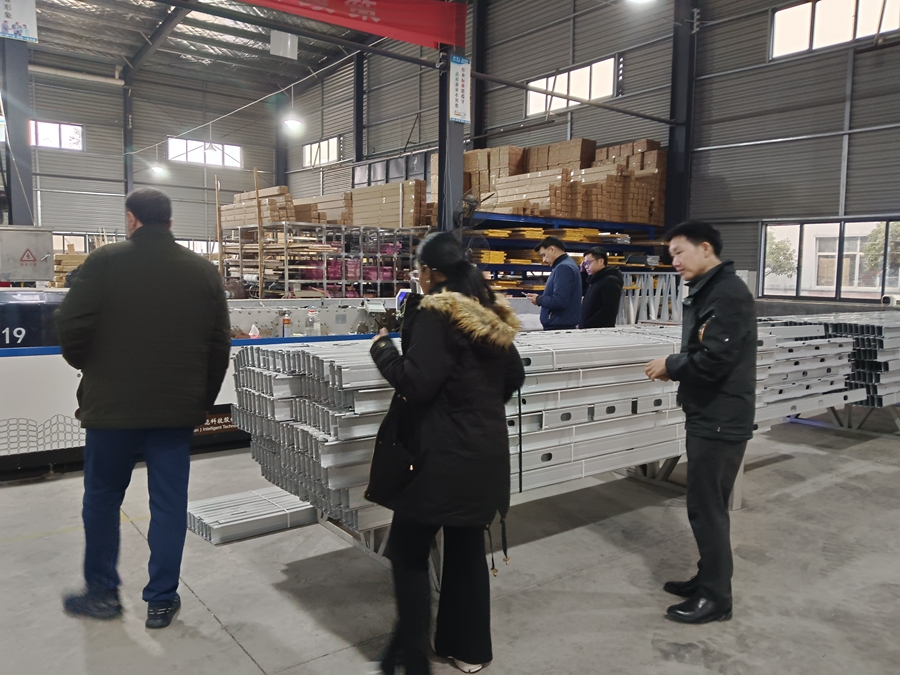Introduction: Light Steel Frame Villas – An Innovative Solution for Modern Architecture
As the global construction industry shifts toward green and efficient practices, light steel frame (LSF) villas have emerged as a popular option due to their eco-friendliness, rapid construction, and durability. In Malaysia—a tropical country facing challenges like humidity, heavy rainfall, and termite infestations—traditional concrete buildings often struggle. This article analyzes the potential of LSF villas in Malaysia through the lenses of climate adaptability, cost efficiency, regulatory compliance, and market demand, providing actionable insights for investors and homeowners.

1. Climate Adaptability of Light Steel Frame Villas in Malaysia
1.1 Resistance to Humidity and Corrosion
Malaysia’s average annual temperature (25–32°C) and high humidity (over 80%) cause mold in wooden structures and water seepage in concrete. LSF villas, using galvanized steel panels (G90 standard) and anti-corrosion coatings, offer robust protection:
- 50+ years of rust resistance due to advanced galvanization.
- Thermal insulation: Wall cavities filled with insulation reduce indoor temperatures by 3–5°C, cutting air conditioning costs.
1.2 Resilience Against Natural Disasters
- Typhoon resistance: Bolted steel frames withstand winds up to 50 m/s (equivalent to strong typhoons), ideal for the monsoon-prone east coast.
- Earthquake adaptability: Flexible steel structures disperse seismic energy, crucial for earthquake zones like Sabah.
- Termite-proof: Steel eliminates termite damage, a common issue in Southeast Asia.
1.3 Rapid Construction During Rainy Seasons
Traditional projects face delays during monsoons, but LSF villas—with 80% prefabricated components—can be assembled on-site in 2–4 weeks, minimizing weather disruptions.

2. Economic Analysis: Costs vs. Long-Term Benefits
2.1 Initial Investment and Savings
- Construction costs: LSF villas cost MYR 120–180 per sq ft, slightly higher than brick-and-mortar (MYR 100–150), but save 30% in construction time (reducing loan interest and labor expenses).
- Low maintenance: Annual costs are 40% lower than traditional buildings (no crack repairs or pest control).
2.2 Government Incentives
Malaysia’s Industrialized Building System (IBS) policy offers tax incentives (e.g., 10% MIDA subsidies) and fast-track approvals for prefab projects.
2.3 Land Utilization Efficiency
Modular designs maximize space in sloping or narrow urban plots, perfect for dense areas like Kuala Lumpur and Penang.

Ruijie Light Steel Villa Production Base
3. Market Acceptance and Challenges
3.1 Public Perception and Education
- Misconceptions: Some associate steel with an “industrial” aesthetic. Solutions include showcasing diverse designs (e.g., wood-grain finishes, modern minimalism).
- Case studies: Johor’s Steel & Nature Villa, an eco-resort blending LSF with tropical landscaping, has become a viral tourist destination.
3.2 Local Supply Chain Development
- Material imports: Reliance on Chinese and Australian steel may decline as local production expands.
- Workforce training: Universities need courses on prefab construction to address skill gaps.
3.3 Regulatory Compliance
- Standards: Must adhere to MS 544 (Malaysian Standard for Steel Structure Design) and fire safety codes (e.g., BOMBA certifications).
- Height restrictions: Some states limit LSF buildings to 3 floors, requiring special permits.
4. Opportunities in Sustainability
4.1 Green Building Certification
LSF materials are 90% recyclable, with 70% less construction waste, aiding compliance with Malaysia’s Green Building Index (GBI) and boosting property value.
4.2 Carbon Neutrality Goals
Malaysia’s 2050 net-zero target aligns with LSF’s reduced cement use (saving 0.3 tons of CO₂ per sq meter).
4.3 Tourism and Commercial Applications
- Luxury resorts: Sabah’s Steel & Sea Resort uses LSF villas for oceanfront stays (90% occupancy rate).
- Emergency facilities: LSF structures enabled rapid COVID-19 quarantine center construction.
5. Conclusion: The Future of LSF Villas in Malaysia
LSF villas demonstrate clear advantages in climate resilience, policy support, and sustainability. Despite challenges like supply chain localization and public education, Malaysia’s LSF market is poised to grow by 20%+ in the next 5 years.